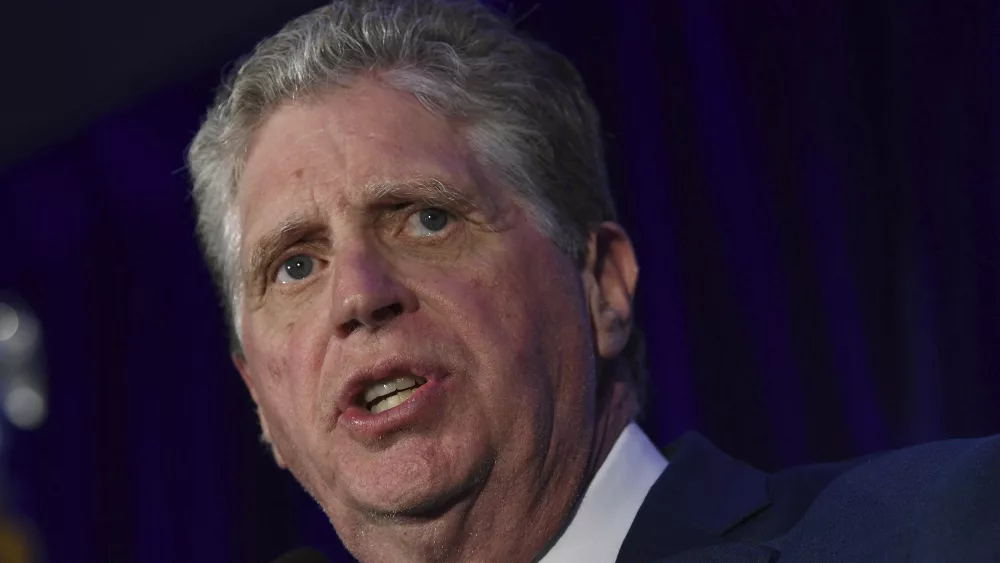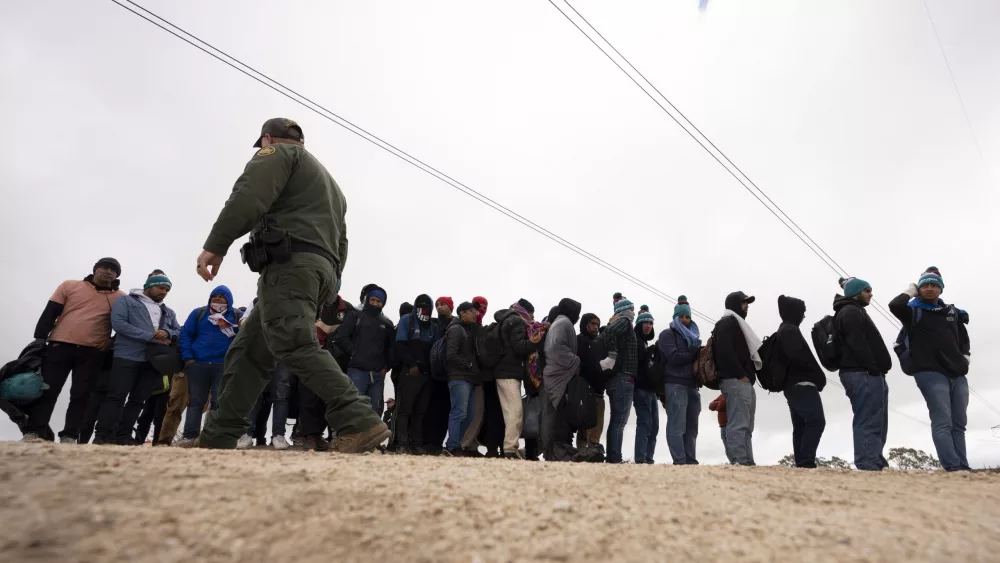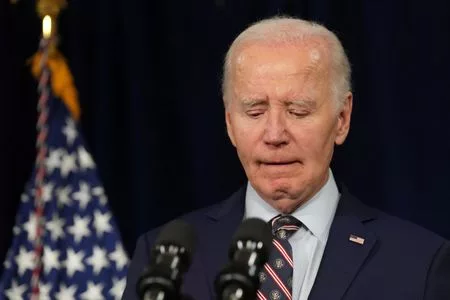NEW YORK (AP) — Richard N. Winfield, a leading U.S. First Amendment lawyer who represented The Associated Press for three decades and championed freedom of expression for journalists around the world, died on Tuesday. He was 91.
Winfield died in his sleep at Bellevue Hospital in New York, said his daughter, Nicole Winfield, who is AP’s Rome-based Italy and Vatican correspondent. He had suffered head trauma after a fall on Oct. 7.
Winfield served as general counsel for AP for three decades while a partner at the New York law firm of Roger & Wells, which became Clifford Chance US LLP. During that time, he worked closely with American publishers and editors, defending AP as well as other media clients in hundreds of press freedom cases.
“When we would ask Dick, as our lawyer, to review a sensitive piece of copy, his first words were often some form of ‘What a great story!’” said Louis D. Boccardi, president and chief executive officer of the AP from 1985-2003. “And then we would go through the story, not to weaken it but to strengthen it against whatever reaction it might bring. He understood the newsroom and appreciated the dedication and the care that had gone into the work.”
After he retired from the firm, Winfield became a founding director of the International Senior Lawyers Project, a non-governmental organization that mobilizes pro bono legal support to advance the rule of law and accountable, inclusive economic development around the world.
Winfield’s volunteer activities to promote freedom of expression took him to over 20 countries. He led media reform programs in several former Soviet bloc nations, trained lawyers and judges from Albania to Zimbabwe about freedom of expression and served as a court observer in overseas media defamation cases.
“Dick Winfield was a true pillar of the First Amendment, and the impact of his work protecting journalists has been felt around the world,” said Karen Kaiser, senior vice president and general counsel at AP. “He was a trailblazer for the AP, setting the foundations for the legal protection for journalism across the country. And above all, he was a kind a gracious person and a great mentor to younger generations.”
Winfield also taught media law classes at the Columbia and Fordham law schools, both in New York City.
Born in Chicago on Jan. 20, 1933, Winfield grew up in Valley Stream, Long Island, the eldest son of Richard Paul Winfield and Mary Bertrand Monaghan Winfield.
He graduated from Villanova University in 1955, and served as a lieutenant in the U.S. Navy from 1955-1959, teaching European and U.S. diplomatic history at the U.S. Naval Academy in Annapolis, Maryland. He graduated from Georgetown University Law school in 1961, two years after marrying Deborah Mary Trainer of Philadelphia.
He began his legal career as an associate at the New York City law firm of Donovan, Leisure, Newton & Irvine and then became assistant counsel in Gov. Nelson Rockefeller’s office in Albany, N.Y., from 1965-1967.
Upon returning to New York City, Winfield began representing AP after the news cooperative’s counsel at Rogers & Wells, William P. Rogers, became secretary of state in the Nixon administration in 1969.
At the senior lawyers project, he established and led the media law working group, which provides litigation support and strategic advice to defend journalists facing defamation charges, monitor trials, reform local media laws and increase accountability.
Under Winfield’s guidance, ISLP intervened in numerous defamation and other free speech cases in national and international courts, including the European Court of Human Rights and the Inter-American Court of Human Rights. By presenting international human rights law-based arguments, ISLP contributed to the acquittals of journalists and bloggers who were facing criminal prosecutions.
In 2021, UNESCO featured ISLP’s work on behalf of a Palestinian human rights defender as a case study in its “Guide for Amicus Curiae Interventions in Freedom of Expression Cases.”
According to the UNESCO citation, “The ISLP intervention came as part of a concerted civil society effort that campaigned for Issa Amro’s freedom. Providing in-depth legal arguments drawn from international human rights law, the intervention gave the campaign legitimacy and argued that the proceedings were politically motivated.”
After observing the 2019 appeals trial in Casablanca, Morocco of 43 people convicted in connection with 2016-2017 mass demonstrations, Winfield described a manifestly unjust process in a 2020 speech before a European Parliament conference on human rights violations in Morocco.
In it, Winfield noted that the confessions of the defendants, including a prominent Moroccan journalist, were reportedly extracted under torture, defense lawyers were repeatedly silenced by the presiding judges whose behavior he said was “devoid of any semblance of impartiality.”
“The hearings we observed presented a textbook case of the high-visibility show trial featuring familiar ingredients,” he told the committee.
When he retired from ISLP in 2023, the organization renamed its media law working group “The Winfield Freedom of Expression Initiative.”
He also served as chairman of the World Press Freedom Committee, co-chairman of Fund for Peace; chairman of the Convent of the Sacred Heart in New York and chairman of the board of consultors for the Villanova School of Law. He was awarded the First Amendment Award of the Deadline Club in 2002 and the Global Pro Bono Visionary Award from ISLP in 2015.
Winfield made his mantra the words of Supreme Court Justice Benjamin Cardozo, who in a 1937 Supreme Court decision wrote that freedom of expression “is the matrix, the indispensable condition, of nearly every other form of freedom.”
Winfield borrowed that concept for the title of the 2012 book he edited, “Exporting the Matrix: The Campaign to Reform Media Laws Abroad.” The book gathered articles about freedom of expression cases, many borne from the Arab Spring uprisings, written by the lawyers, judges, academics and advocates involved.
The book had as its cover a photograph of the giant Isamu Noguchi bas-relief plaque “News” which graces the main entrance of what was for decades the Associated Press headquarters at 50 Rockefeller Plaza.
Winfield is survived by his wife, Deborah and three children, Richard Neill Winfield Jr., Pamela Winfield and Nicole Winfield; their spouses, seven grandchildren and Winfield’s sister, Denise Mack.
Private funeral services are planned. In lieu of flowers, gifts can be sent to Cranaleith Spiritual Center in Philadelphia or the International Senior Lawyers Project in New York.
Brought to you by www.srnnews.com






